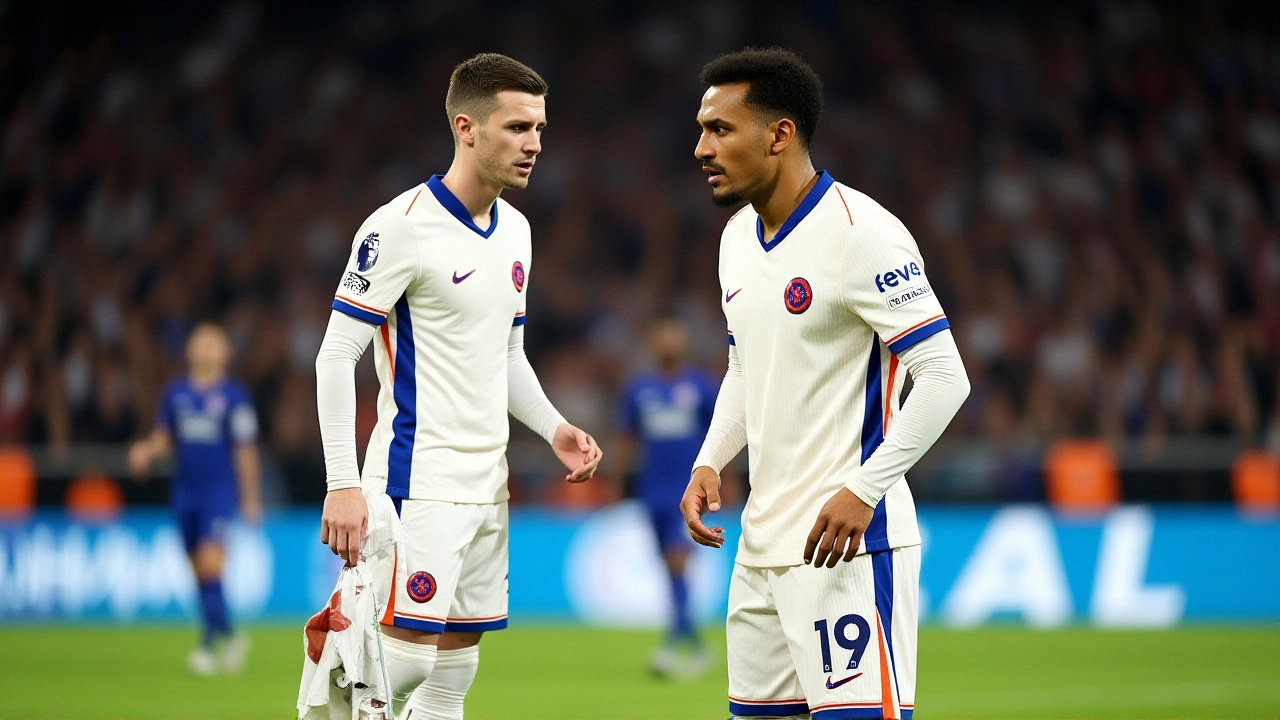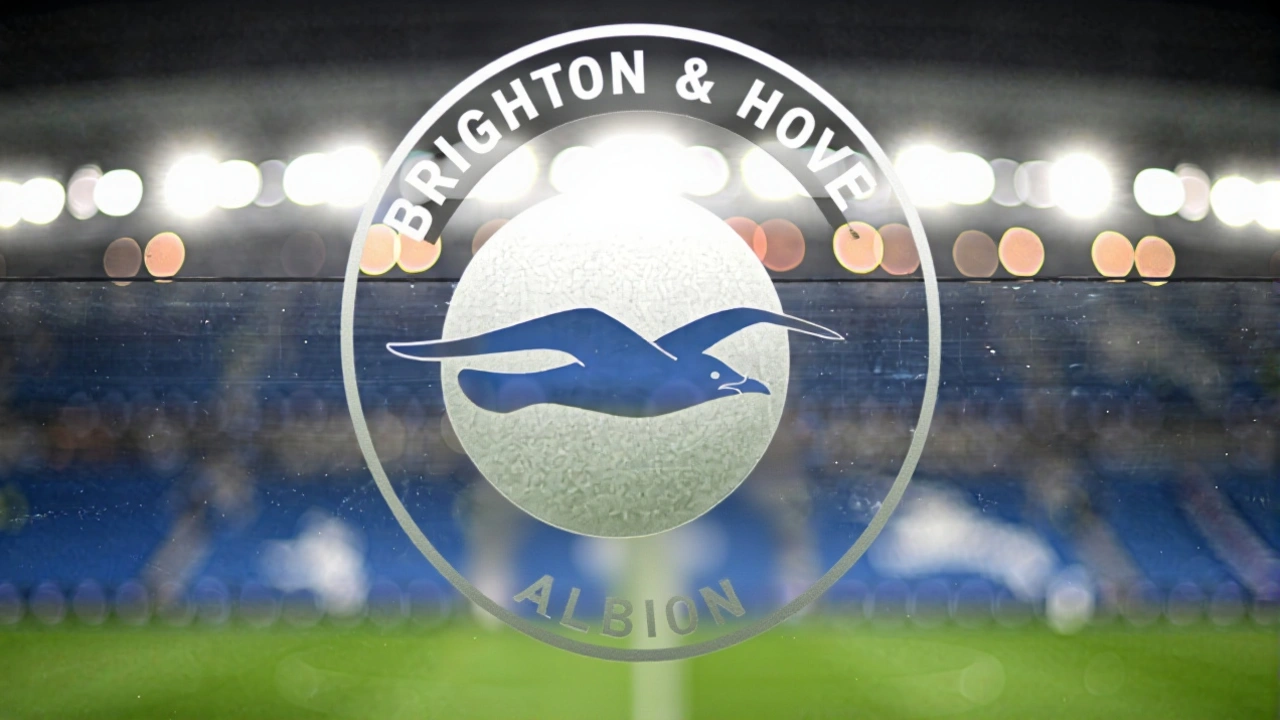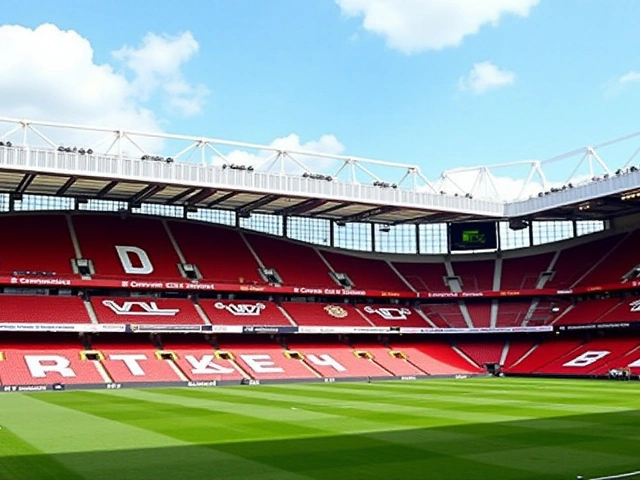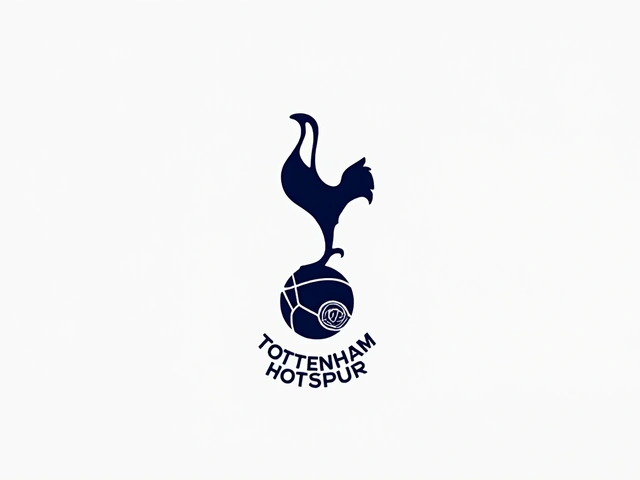Match Overview
From the first whistle, Stamford Bridge felt the buzz of a classic Premier League clash. Chelsea vs Brighton promised fireworks, and the opening minutes delivered a stylish strike from Enzo Fernández. The Argentine midfielder rose above the defence to head home in the 24th minute, sending the home crowd into a roar and seemingly putting the Blues on track for three points.
Brighton, however, were not rattled. Their 4‑2‑3‑1 formation under Roberto De Zerbi emphasized quick transitions and aerial threat. The Seagulls built pressure through Yasin Ayari and Diego Gómez, probing the Chelsea backline for any sign of weakness.
The turning point arrived in the 53rd minute when Trevoj Chalobah slid in to deny Diego Gómez a clear‑cut goal‑scoring chance. The referee, after a lengthy VAR review, issued a straight red card for the defender. Chelsea were reduced to ten men with more than half an hour left to play, and the momentum swung dramatically in Brighton’s favour.
Brighton’s manager promptly switched tactics, pushing their full‑backs higher and feeding the wing‑back Ferdi Kadioglu into space. The change paid dividends when substitute Danny Welbeck rose to meet Yankuba Minteh’s cross, heading the ball past Robert Sánchez in the 77th minute to level the score.
What followed was a masterclass in exploiting a numerical advantage. In the added time of the second half, Brighton’s relentless crossing forced the Chelsea defence into errors. Maxim De Cuyper, who had come on for an injured player, found himself unmarked at the far post and headed home in the 92nd minute, giving the visitors the lead for the first time in the match.
The drama did not end there. The referee signalled eleven minutes of stoppage time, and Brighton capitalised once more. A deep ball from Yasin Ayari was flicked back into the box by Mats Weiffer, and Welbeck timed his run perfectly, smashing the ball home in the 100th minute to seal a 3‑1 victory.

Aftermath and Implications
Beyond the scoreline, the match raises several questions for both clubs. Chelsea’s defensive frailties were laid bare, especially against aerial deliveries. The red card highlighted a lack of composure; Chalobah’s decision to slide‑tackle a through ball not only cost a player but also exposed the side’s inability to reorganise under pressure.
Enzo Maresca, still in his inaugural season at the helm, now faces scrutiny over his tactical flexibility. The young squad showed glimpses of brilliance in the first half but struggled to adapt when forced to defend a lead with ten men. Statistically, Chelsea completed 16 shots compared to Brighton’s 12, yet their conversion rate dropped from 6.25% to just 6% after the dismissal.
Brighton’s comeback underscores De Zerbi’s knack for game‑management. The Seagulls have turned the loss of a key defender (Adam Webster) into an opportunity to test squad depth, with De Cuyper’s impact as a substitute proving the effectiveness of their recruitment strategy.
Historical head‑to‑heads still favour Chelsea – 11 wins to Brighton’s six – but this result narrows the gap and adds a fresh narrative to the rivalry. For the Blues, the defeat also means they slip to 8th place, while Brighton climb to 9th, tightening the battle for European spots.
Looking ahead, Chelsea must address two core issues: discipline and defending set‑pieces. The club’s medical team reports that several core defenders, including Levi Colwill and Tosin Adarabioyo, remain sidelined, limiting Maresca’s options. Meanwhile, Brighton will likely retain the confidence gained from the comeback, reinforcing their belief that they can compete with the league’s traditional powerhouses.
Fans exiting Stamford Bridge were left with mixed emotions. While some praised the early lead and the effort shown by the youngsters, many expressed frustration at the late collapse. The atmosphere turned somber as the final whistle blew, with the home supporters reflecting on what could have been a solid start to the season.
In the broader context of the Premier League, this match serves as a reminder that no advantage is safe when discipline falters. As the campaign progresses, both clubs will be keen to learn from this encounter – Chelsea to tighten up at the back, Brighton to build on their resilience and finish strongly in the final minutes.





Comments
Man, that red card really blew the game open for Brighton. I get why fans are upset, but it’s also a chance for the young Blues to learn composure under pressure. If they tighten up defensively and keep the discipline, they could bounce back next week.
Brighton’s switch to high full‑backs after the dismissal was a smart tactical adjustment that exploited the space left by Chelsea’s depleted back line.
De Zerbi’s decision to push his wing‑backs higher after the red card changed the geometry of the game.
By stretching the pitch, he forced the Chelsea midfield to cover more ground than they could with ten men.
The Seagulls’ overload on the right side created crossing opportunities that the Blues struggled to clear.
Danny Welbeck’s experience paid off when he timed his run to meet Minteh’s delivery.
That goal not only leveled the score but also shifted the psychological balance in Brighton’s favour.
The second half saw Chelsea trying to revert to a compact shape, yet the lack of a centre‑back made aerial duels a liability.
When De Cuyper attacked the far post, the Chelsea goalkeeper was already out of position from the previous defensive scramble.
Scoring in the 92nd minute was a textbook example of exploiting numerical superiority on set‑piece situations.
The final flourish in stoppage time demonstrated the squad’s belief that the game was still winnable.
Welbeck’s late winner was a testament to his fitness and positional awareness despite his age.
From a managerial perspective, Maresca will have to reconsider his substitution pattern after half‑time.
Keeping a fresh pair of legs on the pitch could have mitigated the impact of the red card.
Moreover, the defensive frailties exposed by Brighton’s wing‑back runs suggest a need for a more disciplined back four.
In the broader league context, this result narrows the points gap between the top‑half clubs and adds pressure on Chelsea’s title ambitions.
If the Blues can address their discipline and set‑piece defending, they will still be in contention for European spots.
i feel like the game was a lesson in humility, kinda like when you think you’re on top and then reality smacks you with a red card. it’s wild how quickly the vibe flips.
Honestly, Chelsea looked like a bunch of amateurs after that slide. Maybe they should’ve hired a coach who actually knows how to organise a defence when down to ten.
stats don’t lie – brighton had 8 corners vs chelsea’s 3 ⚽️. also, the possession after the red was more like 55% for the visitors, which shows how they dominated the tempo. nice work de zerbi! 🙌
it’s sad to see cheating on the field, but it’s just football.
the match reminded me that football is as much a mental game as a physical one. when a team loses a player, the collective mindset often shifts. brighton capitalised on this by staying aggressive and never letting chelsea settle. the blues seemed to be playing catch‑up for the rest of the game. their midfield looked disjointed, passing without direction. meanwhile, the seagulls’ full‑backs provided width that opened up crossing lanes. it’s a classic case of taking advantage of a numerical edge. in the end, the result was a fair reward for the team that stayed focused.
chelsa need to work on discipline and set piece defense
Brighton deserved the win.
In summary, the encounter underscores the importance of squad depth and tactical adaptability in the Premier League. While Chelsea’s early dominance was evident, the red card exposed systemic vulnerabilities that Brighton adeptly exploited. Moving forward, both clubs must address these issues to maintain competitiveness in the stretch run.